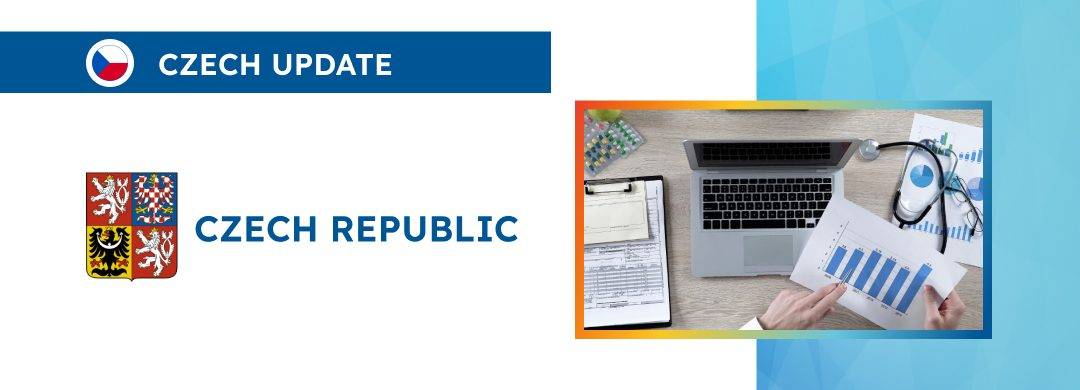The article describes in detail the aspects related to the responsibilities of the parties involved in the distribution process.

Table of content
The Czech Republic has published a new regulation on advertising medical devices. The document establishes the main principles for advertising activities related to medical devices intended to be marketed and used in the country and also highlights certain specific aspects to be taken into consideration by the parties involved in the distribution thereof.
Handling Medical Device Samples
The regulation sets forth a comprehensive framework of regulatory compliance for the handling, use, and management of ZP and ZP IVD (medical device and in vitro diagnostic device) samples within the healthcare sector.
The legislator brings attention to the specific nature of the obligations of various stakeholders, including distributors, sales representatives, and healthcare providers authorized to prescribe and dispense these samples.
The emphasis is on meeting not only the conditions specified by the Act on the Regulation of Advertising but also those outlined by the applicable legislation covering ZP and ZP IVD samples.
The document also emphasizes the importance of maintaining proper storage conditions for these medical samples.
This involves ensuring that the storage facilities meet the required standards for temperature, humidity, and other environmental factors that might affect the samples’ integrity.
Additionally, there is a significant focus on monitoring the shelf life of products to prevent the use of expired items and on maintaining intact packaging to ensure sterility and protect against contamination.

Healthcare Providers: Obligations
The regulation also contains an appendix “Obligations of the health service provider when using the device” which is particularly detailed, providing a clause-by-clause breakdown of the statutory requirements.
These requirements include the necessity for healthcare providers to use products strictly in line with the manufacturer’s instructions to ensure devices with a measuring function comply with metrology regulations and to guarantee that any person providing health services is well-informed about verifying the device’s technical condition and functionality before use.
This also reasonably extends to accessories, software, and other products expected to work in conjunction with the device.
The document specifies that correct storage practices must be observed, ensuring that the devices are kept in conditions that preserve their functionality and safety.
Additionally, it mandates that devices must be serviced as per the Act, which likely includes routine maintenance and calibration where necessary.
When it comes to custom-made devices, the healthcare provider must provide the patient with the manufacturer’s statement about the custom-made device, ensuring transparency and informing the patient about the specifics of their personalized equipment.
Furthermore, if any field safety corrective measures are established by the manufacturer – actions taken to reduce the risk of a serious adverse event associated with a medical device, they must be promptly and effectively carried out in due course.
The document also addresses language requirements, stipulating that instructions for the use of the devices must be available in the Czech language, with specific exceptions noted for lower-risk devices where the manufacturer has indicated that such instructions are not necessary for safe use.
For higher-risk medical devices, it is required that the healthcare provider make a record of the device’s use in the patient’s medical documentation.
Moreover, the provider must keep a unique identification of the devices, which is crucial for tracking and accountability purposes.
This information must be made available to the designated institute upon request.
The obligations extend to the documentation of devices that require briefings, safety technical inspections, or are designated as working gauges by the metrology regulations.
The specific content of this documentation will be determined by further legal regulations, implying an ongoing development and improvement of the documentation standards.
Finally, the regulation details the necessity of making all information from the device’s instructions for use available to the person providing health services.
In the case of implantable devices, the healthcare provider must provide the patient, or their legal representative or guardian, with a card containing vital information about the implant in the Czech language, ensuring that the patient can access this information readily.
Conclusion
In summary, the regulation outlines the responsibilities of the parties involved in operations with medical devices allowed for marketing and use in the country to ensure their proper performance, as well as the safety of patients.
The document highlights the key points to be considered by healthcare providers when communicating information about the products to patients and other parties.
How Can RegDesk Help?
RegDesk is a holistic Regulatory Information Management System that provides medical device and pharma companies with regulatory intelligence for over 120 markets worldwide. It can help you prepare and publish global applications, manage standards, run change assessments, and obtain real-time alerts on regulatory changes through a centralized platform. Our clients also have access to our network of over 4000 compliance experts worldwide to obtain verification on critical questions. Global expansion has never been this simple.

